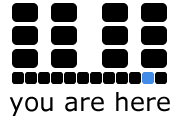Materiality
by Jentery, Curtis, Matthew & Jamie
It is tempting to treat metadata merely as information. As Jentery shows, metadata does enable some distance from artifacts, and that distance is often empowering. For one, it allows people to wrangle a large volume of artifacts under a single umbrella term and navigate entire archives, often with ease. Nonetheless, metadata practices should not neglect the material world of people and artifacts. Or, put differently, they should not split information from the very objects or subjects that metadata describes.
Of course, materiality can refer to the physical characteristics and technical particulars of objects—such as photographs and digital images—as matter. In this sense, objects afford certain behaviors, and they restrict others. And each object is different from the next. From this perspective, metadata is by necessity reductive. It cannot fully account for a given asset in a collection, and it flattens an object’s texture by treating it categorically.
Another valence for materiality implies that metadata emerges through an ambivalent array of cultural practices. Curtis demonstrates that the creation, interpretation, and circulation of metadata are imbricated in historically complex questions of race, Jentery argues that metadata can be a homogenizing placeholder for conflicting interpretations of difference, and Matt makes the point that metadata is always contingent. All of these claims refuse to treat metadata as a pure abstraction. That is, the very practices that enable its construction and protocols are embodied, contextual, and thus tied to questions of representation, race, gender, class, and sexuality.
Neither of these approaches suggests that standardization should be abolished entirely. To reiterate: we need data classification, and we need metadata standards. However, what they do suggest is that materialist approaches to information must resist the impulse to naturalize classification or render standards the products of common sense. Categories such as “miscellaneous” and “other” never fail to problematize such logics.
